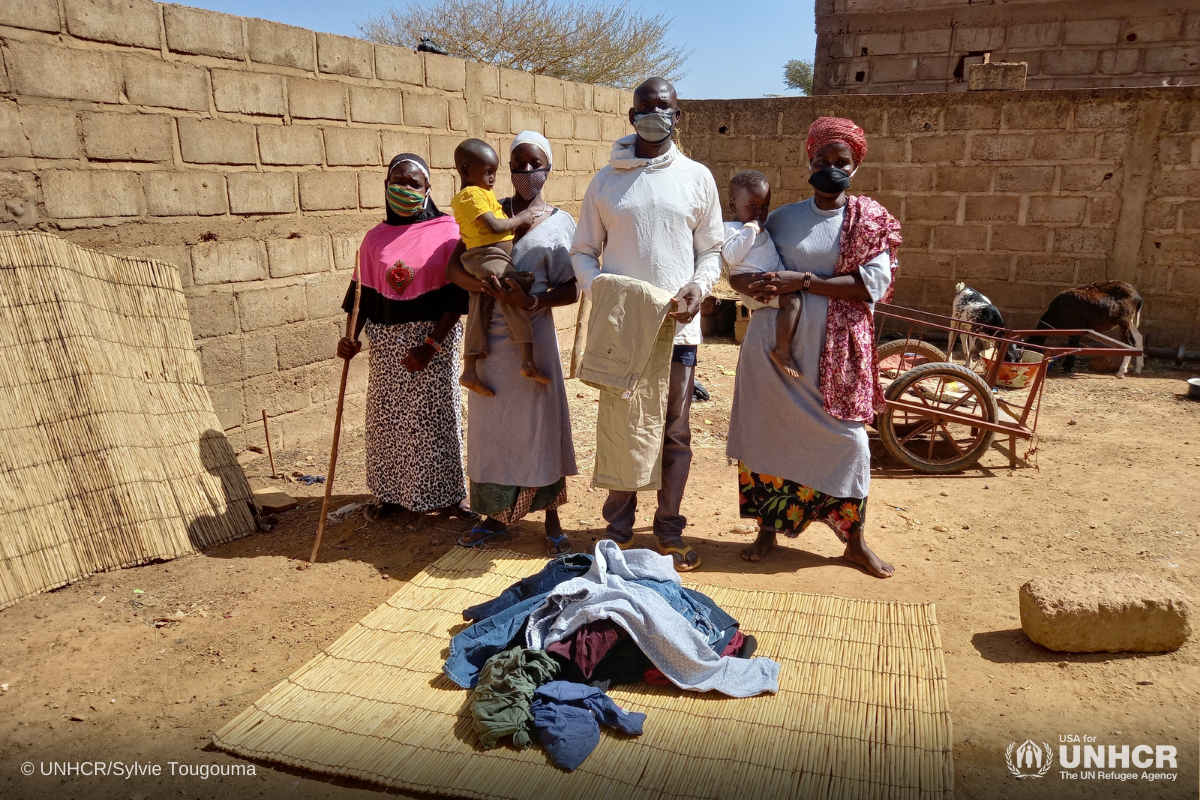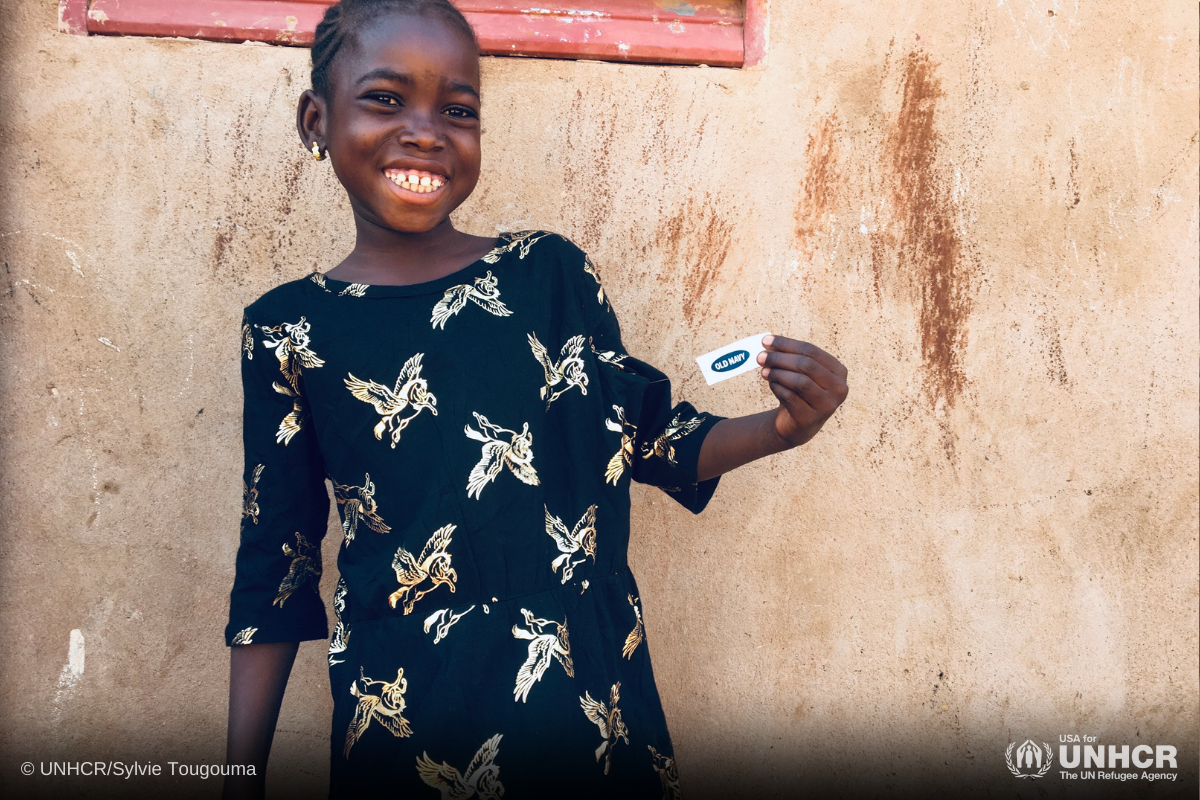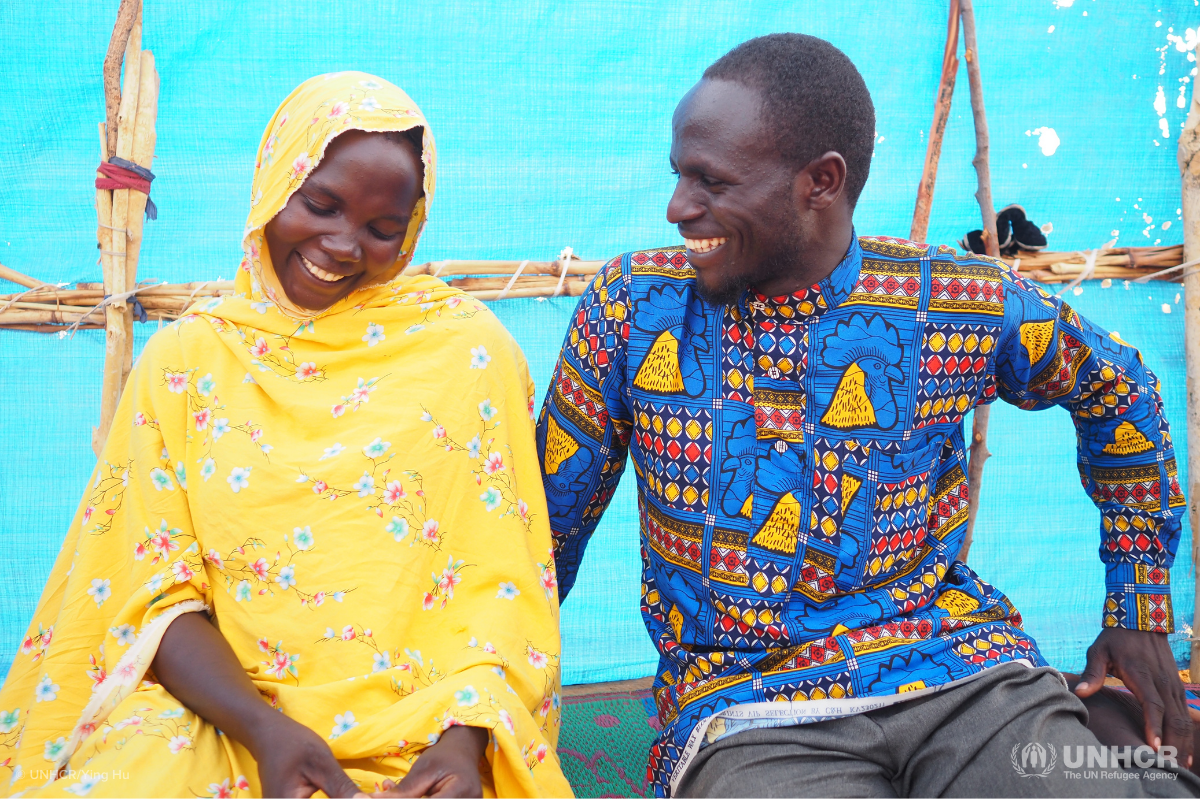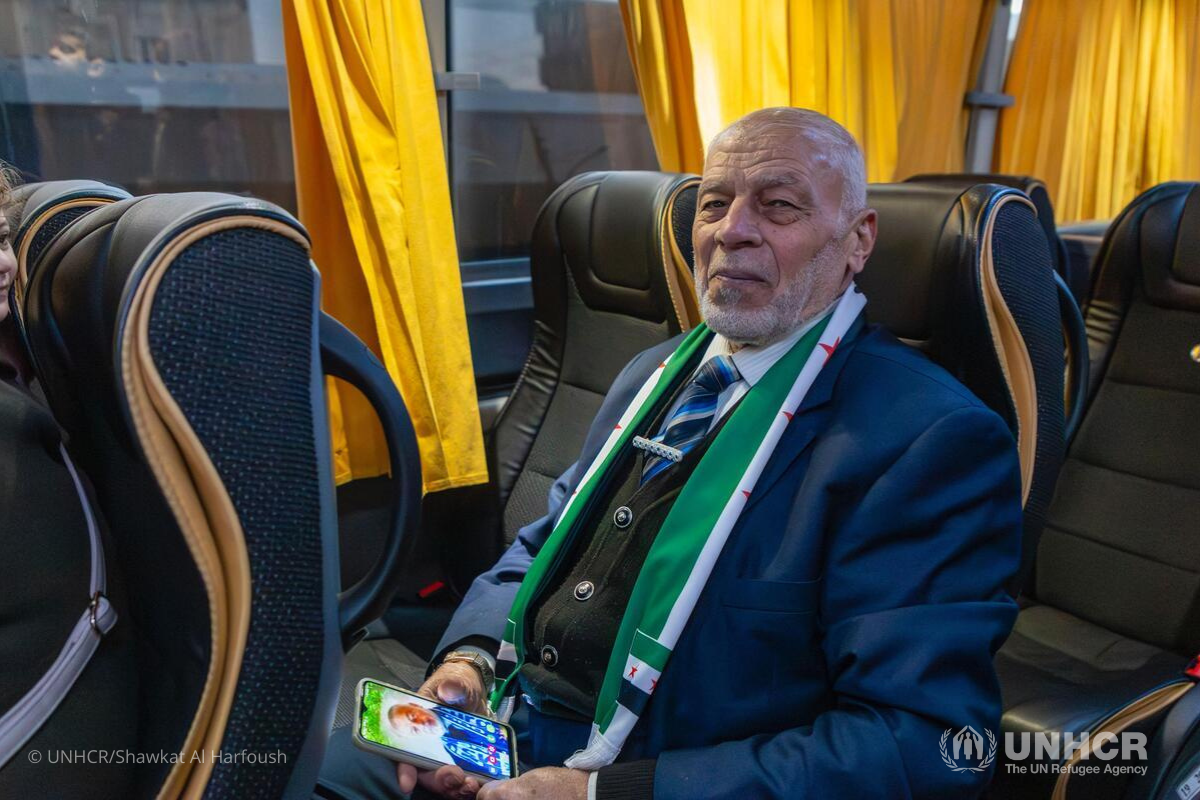Millions of refugees receive hope and dignity with new clothes, a gift of solidarity from U.S. retailers
Those who have never had to flee their home for fear of losing their life may take for granted the simple act of "getting dressed." Clothing ourselves is often a reflection of our identity, our values and our social and economic standing — for refugees, clothes also represent an important measure of self-protection.
Refugee families often flee their homes with nothing but the clothes they are wearing. They travel for days or weeks to find safety. Along the way, their clothes get dirty, ragged and worn beyond repair — offering little protection from the elements. In addition to the physical need for new clothes for protection, new clothes offer refugees a chance to start rebuilding with confidence and dignity. New clothes always make a positive difference in a refugee’s life.
In the wake of a large disaster or humanitarian crisis, private sector donors are often inspired to help by offering in-kind goods to assist those affected. When a U.S. business expresses interest in contributing goods to UNHCR, the UN Refugee Agency, on behalf of refugees, the conversation begins with USA for UNHCR, the national partner organization granted exclusivity for conducting fundraising activities in the U.S.
“Our gift-in-kind program directly supports over a million people each year. This is only possible by our donors' generosity and the team's care to ensure these items reach the right people at the right time,” says Ian Rodgers, Senior Director of Innovation and Strategic Partnerships with USA for UNHCR.
Forced to Flee: Bringing Memories and What You Can Carry
In the darkest moments of uncertainty in a crisis, the fine print of protection papers or a passport can determine a refugee’s future. These concerns come second only to survival – the most pressing priority for someone forced to flee their home. In the chaos of fleeing, basic objects like clean clothes are often forgotten or unable to be gathered in time. But after a family finds safety, material needs like new, clean clothes become a pressing need. Children will need clothes for school and parents will need clothes to look for work.
 At the moment Zida and his family were forced to flee their home in Burkina Faso because of life-threatening conflict, they made the heartbreaking decision to leave behind their livestock – a source of income and nourishment for the family. Clothing was the last thing on their mind at that terrifying moment.
At the moment Zida and his family were forced to flee their home in Burkina Faso because of life-threatening conflict, they made the heartbreaking decision to leave behind their livestock – a source of income and nourishment for the family. Clothing was the last thing on their mind at that terrifying moment.
The family found safety but only after exhausting their savings. The family was fortunate to find shelter with a host family and Zida worked hard and eventually was able to start a small business. Money was tight, but fortunately for Zida and his family, they received new clothes at a UNHCR clothing distribution.
“The clothes I received for me and my family are very helpful in that it contributes to reducing significantly my expenses,” says Zida. Of the clothing his family received, he shares that the sweaters are the most useful because they keep his children warm during the cold season.
“Everyone got a sweater and we are happy and grateful.”
New Clothing Brings Joy and Stability
At a basic level, clothing protects the well-being of refugees and works as a psychological boost. Receiving appropriately sized and fitted clothing increases the dignity of choice in personal attire and results in a sense of restored comfort – keeping the body covered or warm, healthy and safe. New clothing offers a feeling of stability and a connection to a daily routine – all of which are elements of a life free of violence and conflict. But new clothing also brings joy to a person's life and can help restore confidence.
 The joy on Oumou’s face as she proudly wears her new dress is at the heart of USA for UNHCR’s gift-in-kind program. In addition to receiving this new dress, Oumou received a new pair of pants, a sweater and a shirt at a clothing distribution in Burkina Faso.
The joy on Oumou’s face as she proudly wears her new dress is at the heart of USA for UNHCR’s gift-in-kind program. In addition to receiving this new dress, Oumou received a new pair of pants, a sweater and a shirt at a clothing distribution in Burkina Faso.
At the time of the distribution, Oumou was not enrolled in school — her father had recently lost his job and the family did not have money for the enrollment fees. The clothing received by the family is economically relieving and provides a moment of happiness during a challenging time. Despite the challenges, Oumou continues to dream about her future and she shares that she hopes to be a teacher one day to help educate others.
Getting Clothes to the Right People at the Right Time
While UNHCR provides basic items, called core relief items, which fulfill the basic needs of people forced to flee, there remains a high demand for new clothing.
In 2020, USA for UNHCR and Good360, a nonprofit that works with companies to distribute donated goods where they can do the most good, partnered on a special project to deliver a large-scale donation of new clothes to Burkina Faso, a West African nation that was facing one of the fastest-growing displacement crises in the world. The intense violence in Burkina Faso forced millions to flee across the region, both within countries and across borders.
USA for UNHCR operates as a third-party facilitator to assess emergency relief donations and manage quality control. USA for UNHCR follows a thorough due diligence process to assess risk and compliance, negotiates delivery terms, and manages shipping marks and documents, including loading requirements and logistical communications.
Once a donation is verified and passes due diligence the goods are then sent to be processed, sorted and packed before moving the supplies to the UNHCR country office and then to refugee and host community members through planned distributions.
Delivering new clothing at the scale of humanitarian need requires significant processing, sorting, shipping, and distribution costs. UNHCR operations are often underfunded and struggle to meet the needs of the population. USA for UNHCR relies upon donor support to provide refugees with ongoing relief.
“Neither the private sector nor the nonprofit sector can solve this problem alone. And it's so important to have those relationships to be able to provide the product, the expertise and the distribution,” says Chris Fulkerson, Director of Fulfillment at Good360.
“With philanthropic, private sector companies donating product and Good360 as that logistics partner to bridge in the middle to sort and prepare [clothes] for shipment, it's what it will take to bring some dignity and humanity to people in situations that most of us can't imagine.”
Since 2020, the USA for UNHCR’s gift-in-kind program has grown exponentially, delivering care to refugees in over 19 countries, and providing 16 million pieces of clothing. Gift-in-kind partnerships matched with the immediate emergency needs of refugees is a proof-of-concept modeling and an innovative way to address responsible consumption and production, the ultimate aim of UN Sustainable Development Goal 12.


